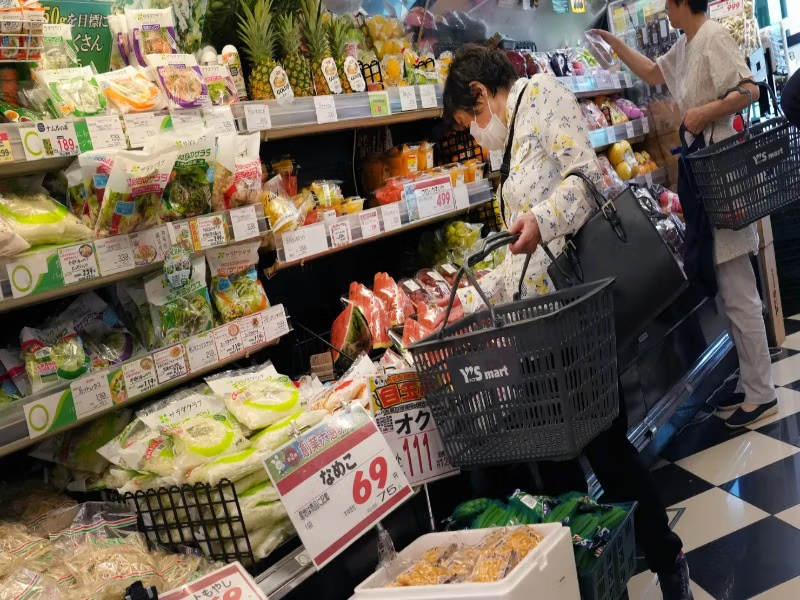The core inflation of Japan increased in October by the highest rate since July in accordance with market expectations on Friday, which favors interest rate increases by the Bank of Japan.
Economists polled by Reuters indicated that the core inflation that deflates fresh food prices stood at 3 percent. Headline inflation rate increased to 3 percent and remained above the target rate of 2 percent of the BOJ over 43 consecutive months.
The so-called “core-core” inflation rate, which eliminates the prices of fresh food and energy, increased to 3.1 percent, compared to 3 percent in September.
However, the rice inflation kept declining for the fifth month in a row to 40.2 percent compared to 49.2 percent the previous month.
The Nikkei 225 in Japan fell by 1.58 percent, and the yen had been boosted by 0.1 percent, to trade at 157.5 against the dollar, as senior Japanese officials expressed displeasure with the movement of the yen.
BOJ Governor Kazuo Ueda informed on Friday that the parliament of the country that the central bank needs to be cautious that a weak yen would impact the underlying inflation by increasing the cost of imports and wider prices.
Reuters stated that the indication in response to the weakening of the yen, the Finance Minister of Japan, Satsuki Katayama, was reported to have hinted at a potential market intervention, citing that she was “alarmed by recent one-sided, sharp moves in the currency market.”
LSEG data show that the dollar has been strengthening 2.19 percent against the yen since the beginning of the month of November, though in the past six months, it has risen 9.52 percent.
Ueda also met the newly elected Prime Minister Sanae Takaichi for the first time in a bilateral meeting earlier this week.
Reuters reported that at the meeting, Ueda informed Takaichi that the central bank was “gradually raising interest rates to guide inflation smoothly towards its 2% target and ensure the economy achieves sustainable growth.”
Takaichi has been a supporter of a loose monetary policy, and earlier this month she wrote to the parliament of the country that she wanted the BOJ to “conducts policy appropriately” so that the 2 percent target in inflation should be met through wage increases rather than cost-push factors.
Takaichi added that “The type of inflation we’re seeing now is not good.” The governor of BOJ also mentioned that Takaichi had not made any request regarding monetary policy.
The central bank is now between a rock and a hard place, as inflation is at the higher end of the target and the GDP growth rates are faltering, with Japan being struck by the U.S. tariffs.
The GDP of Japan declined in the third quarter of the year, the first decrease in six quarters, and it declined by 0.4 percent sequentially and 1.8 percent annually.






